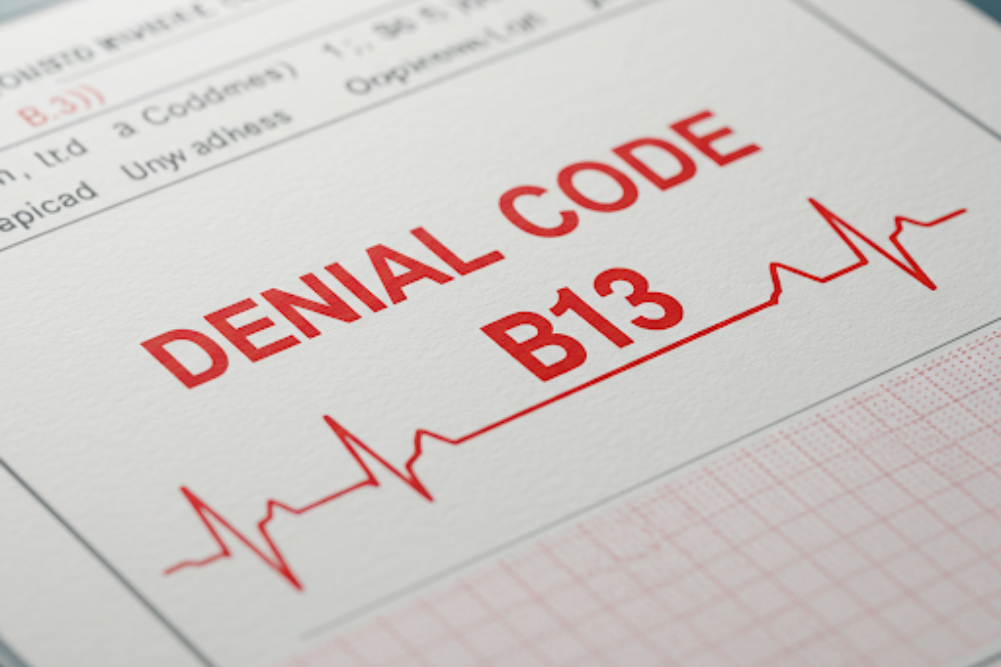For practice managers and healthcare providers, B13 denials (“payment already made”) can be frustrating roadblocks to revenue. These denials occur when payers flag claims as duplicates or previously paid, creating unnecessary administrative work and delaying payments. Let’s break down how to prevent and resolve these denials effectively.
Why B13 Denials Happen
B13 denials typically stem from:
- Duplicate claims (accidental or intentional resubmissions)
- Overlapping services (same-day visits or procedures)
- Coding errors (incorrect modifiers or billing codes)
- Payment allocation mistakes (misapplied payments)
- Contractual discrepancies (services not covered as billed)
Prevention Strategies
- Perfect Your First Claim Submission
- Double-check patient info, dates of service, and codes
- Use claim scrubbers to catch errors pre-submission
- Implement Smart Billing Practices
- Verify patient eligibility before service
- Track claims in real-time to avoid duplicates
- Maintain updated payer-specific billing guides
- Build a Denial-Proof System
- Train staff on proper coding and documentation
- Conduct weekly claim audits
- Invest in RCM software with duplicate detection
Fighting B13 Denials
When you receive a B13 denial:
- Investigate Thoroughly
- Compare denied claims with payment records
- Review medical documentation for accuracy
- Take Corrective Action
- Correct errors and resubmit clean claims
- For legitimate duplicates, adjust your records
- Appeal When Warranted
- Prepare clear appeals with supporting documentation
- Follow payer-specific appeal processes
Why This Matters
Each B13 denial represents:
- Wasted staff time (20+ minutes per claim)
- Delayed payments (30-60 days resolution)
- Potential revenue leakage
B13 denials are preventable. Strengthening your front-end processes and creating efficient resolution workflows can minimize these denials and keep your revenue flowing smoothly.

